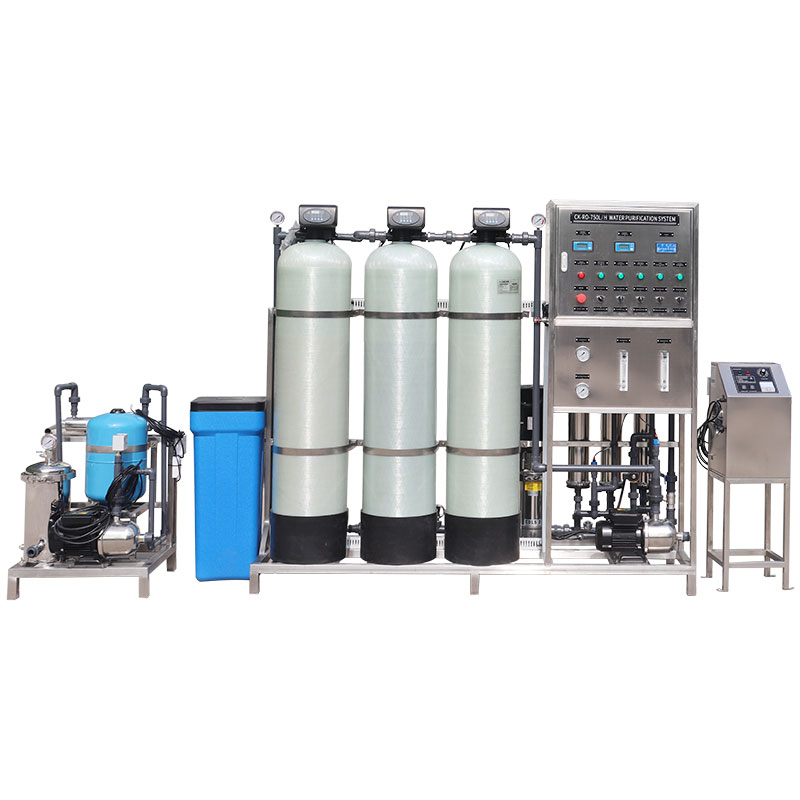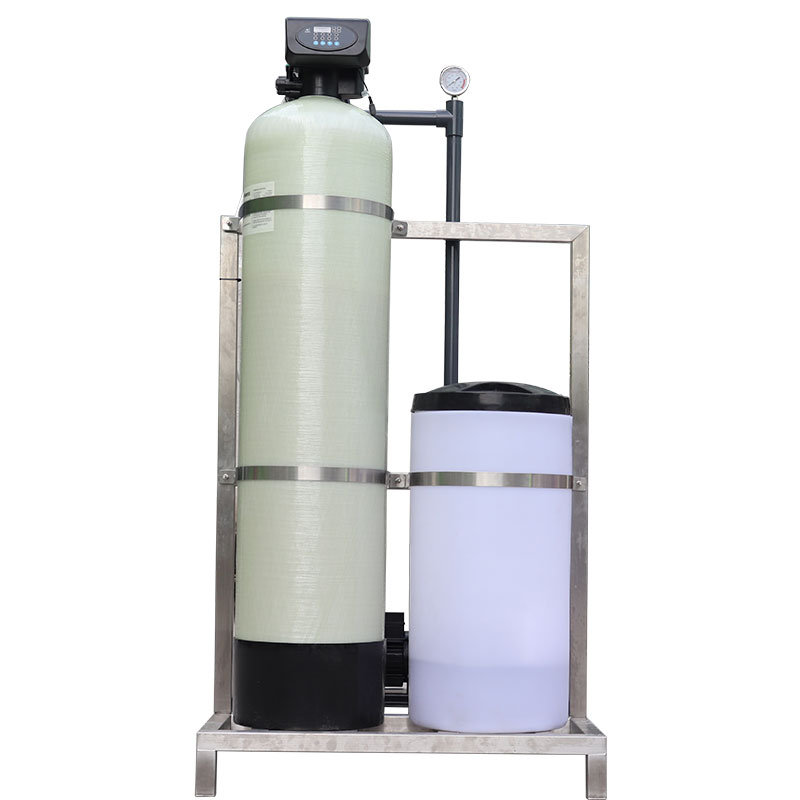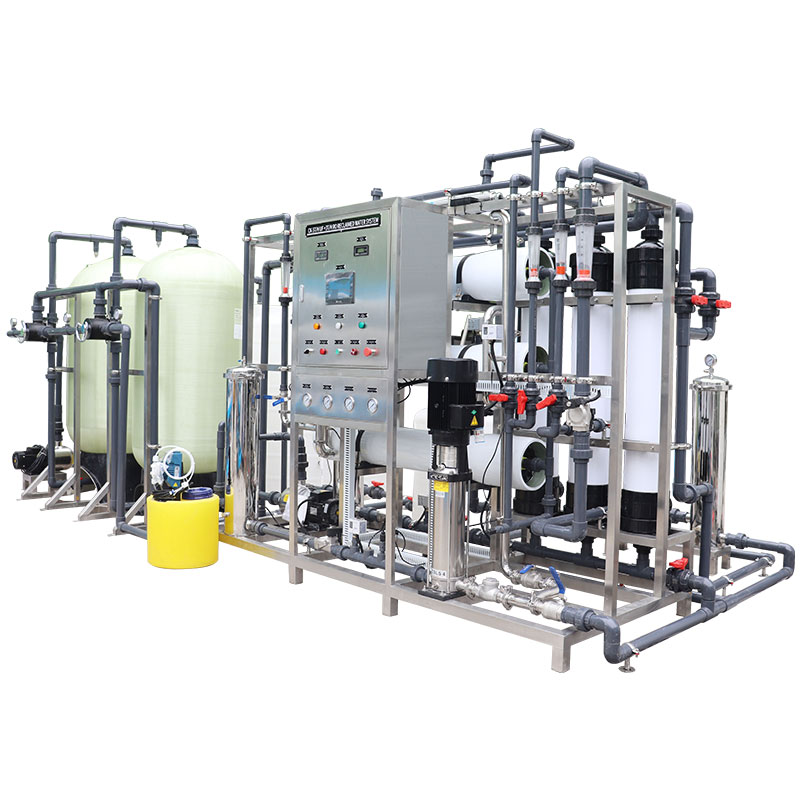What is the connection between feed and water filters?
In livestock and aquaculture, the quality of feed and water directly affects the health and production efficiency of animals. However, many people may not understand the close connection between feed and water filters. This article will explore the relationship between the two and analyze the specific types of water filters suitable for this field.

What is the relationship between feed and water quality?
Feed is the main source of nutrition for livestock and aquaculture animals, and water is an important substance for their life activities. The quality of water directly affects the intake and digestion efficiency of feed, which in turn affects the growth and health of animals.
The impact of water quality on feed intake
In livestock and aquaculture, the quality of water determines the amount of feed intake. If the water contains too many impurities, harmful substances or odors, animals may reduce their water intake, which in turn affects their feed intake, resulting in slower growth and lower production efficiency.
● Livestock and poultry farming: In poultry farming, poor water quality may cause poultry to be unwilling to drink water, affecting the digestion of feed and the efficiency of nutrient absorption. At the same time, polluted water sources may also spread diseases and affect the health of livestock and poultry.
● Aquaculture: For aquaculture, water quality not only affects feed intake, but also directly affects the living environment of fish and other aquatic animals. Deterioration of water quality will cause feed to remain in the water, further polluting the water quality and forming a vicious cycle.
Effect of water quality on feed digestion
Minerals, metal ions and other soluble solids in water quality can affect the digestive system of animals. For example, too high calcium, magnesium or other minerals in water may cause discomfort in the digestive system and affect the absorption of nutrients in feed.
● Excessive mineral content: When the content of minerals such as calcium and magnesium in water is too high, it will cause the hardness of water to increase. This will not only affect the willingness of animals to drink water, but also cause indigestion, thereby reducing the utilization rate of feed.
● Heavy metal pollution: Heavy metals (such as lead and cadmium) in water will accumulate in animals, causing poisoning or other health problems, further affecting feed digestion and nutrient absorption.

Application of water filters in animal husbandry and aquaculture
Water filters play an important role in animal husbandry and aquaculture, and can effectively improve water quality and ensure smooth feed intake and digestion. The following are several common types of water filters suitable for these fields.
Mechanical filter
The mechanical filter removes large particle impurities such as suspended matter, silt, algae, etc. from the water by physical means. This filter is usually used as the first step in water treatment to ensure that solid impurities in the water do not enter the animal drinking water system.
● Applicable scenarios: Mechanical filters are widely used in water quality management in aquaculture to ensure that suspended particles in the water do not affect the breathing and growth of fish. At the same time, it is also an important pretreatment equipment in the livestock and poultry drinking water system to prevent water pipe blockage and equipment damage.
● Advantages: The mechanical filter has a simple structure and is easy to maintain. It can effectively extend the service life of subsequent fine filtration equipment and reduce the overall maintenance cost of the system.
Activated carbon filter
Activated carbon filters are mainly used to remove organic matter, chlorine, odor and other harmful chemicals from water. Activated carbon has a strong adsorption capacity and can effectively remove pollutants in water and improve the taste and quality of water.
● Applicable scenarios: In livestock and poultry farming, activated carbon filters can effectively remove odor and chlorine in water, increase the amount of water animals drink, and thus improve the utilization rate of feed. In aquaculture, it can remove harmful organic matter from water, reduce water pollution, and protect the health of aquatic animals.
● Advantages: Activated carbon filters can significantly improve water quality, increase the willingness of animals to drink water, and have a good removal effect on harmful chemicals in water, protecting the health of the animal's digestive system.
Water softener
The water softener reduces the hardness of water by removing calcium and magnesium ions from water, preventing mineral deposition and scaling. Water softeners are usually used to treat high-hardness water sources to ensure that the water quality is suitable for animals to drink.
● Applicable scenarios: In livestock and poultry farming, hard water can cause scaling of water pipes and drinking water equipment, affecting the normal operation of the water supply system. Using a water softener can effectively solve this problem and ensure the stability of water supply. In aquaculture, water softeners can prevent fish from health problems caused by hard water quality.
● Advantages: Water softeners can extend the service life of water supply equipment, reduce equipment maintenance costs, and at the same time improve the drinking experience of animals and protect the health of the digestive system.
Ultraviolet sterilizer
Ultraviolet sterilizer kills bacteria, viruses and other microorganisms in water through ultraviolet irradiation, effectively preventing the spread of waterborne diseases. Ultraviolet disinfection is a physical treatment method that does not produce chemical residues and is very suitable for water treatment in livestock and poultry and aquaculture.
● Applicable scenarios: In livestock and poultry farming, ultraviolet sterilizers can prevent the spread of pathogens in water sources, reduce the incidence of diseases, and ensure animal health. In aquaculture, it can effectively control the content of microorganisms in water, maintain good water quality, and protect the health of aquatic animals.
● Advantages: The ultraviolet sterilizer has a significant sterilization effect, does not change the chemical composition of water, can provide high-quality drinking water in a short time, and prevent health problems caused by water pollution.

Integrated management of water filters and feed efficiency
In animal husbandry and aquaculture, water filters are not only equipment for purifying water quality, but also an important tool for feed efficiency management. Improved water quality directly increases the animal's feed intake and digestion efficiency. Good water quality makes animals more willing to drink water, thereby increasing feed intake. In addition, the reduction of mineral and chemical pollutants in the water also reduces the burden on the digestive system, improves the digestibility of feed and the efficiency of nutrient absorption.
The use of water filters can effectively reduce the content of pathogens in water sources and reduce the risk of animal drinking water infection. Especially in aquaculture, water pollution is one of the main causes of fish diseases. Through ultraviolet disinfection and other filtration methods, disease outbreaks can be effectively prevented, the amount of medication can be reduced, and production costs can be reduced.
The use of water softeners and mechanical filters can not only improve water quality, but also extend the service life of drinking water equipment and water supply systems. Hardness and suspended matter in water are the main causes of water supply equipment failure. Pretreatment methods can effectively prevent equipment damage and water supply interruption, and ensure production continuity.




